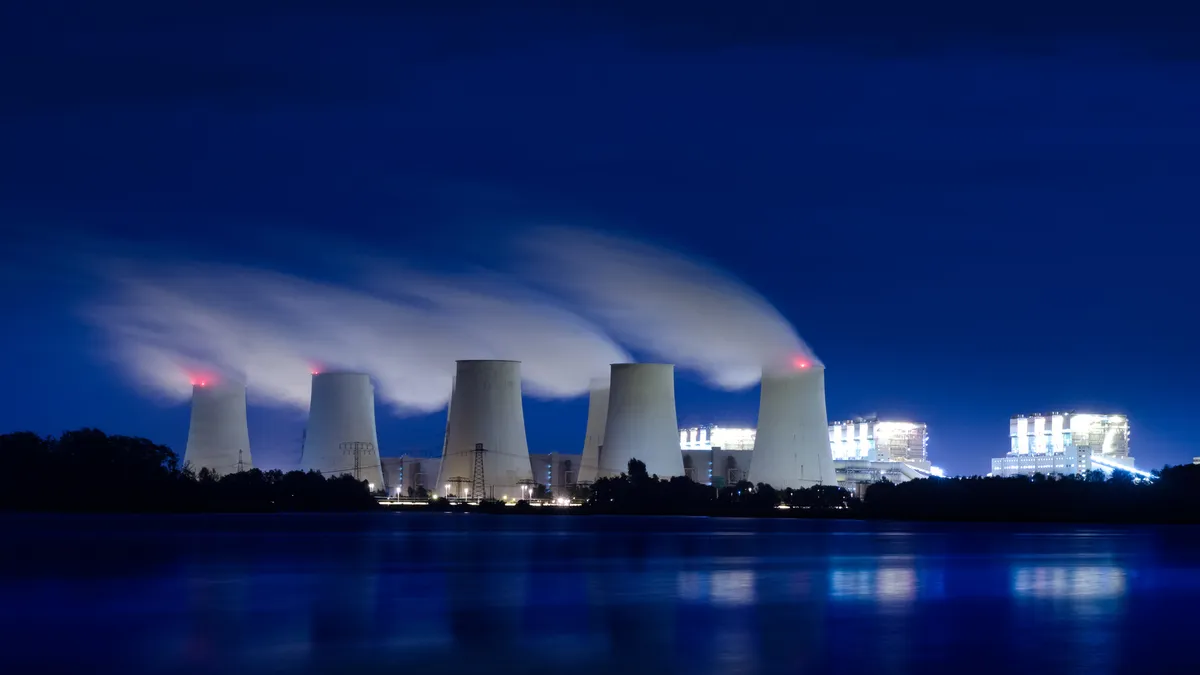Dive Brief:
- The Michigan Agency for Energy (MAE) and the Michigan Public Service Commission have asked the region's grid operator to study the possible impacts of unplanned nuclear outages amid declining reserve margins and a distribution system increasingly tested by hot weather.
- The two agencies want Midcontinent ISO to specifically examine a situation where Palisades Power Plant and Fermi Unit 2 are simultaneously offline in 2018, when the system could begin facing generation shortfalls.
- Palisades and Fermi produce a combined 1,855 MW of power. The scenario is not entirely hypothetical: In 2012, both plants went offline during a heat wave, though the grid was able to sustain power.
Dive Insight:
Cheap gas and stricter environmental regulations are forcing coal-fired plants offline in Michigan, leading to concerns that the state may not have enough generation in a worst-case scenario.
MAE and the PSC asked the grid operator to study a dual-outage situation, explaining the system's "regional planning and modeling expertise is necessary and invaluable to us as we look to determine whether Michigan is on track to continue meeting its reliability goals, including the goal never to experience a massive outage due to a lack of supply."
The letter was sent by MAE Executive Director Valerie Brader and PSC Chairman Sally Talerg.
The study would assume Palisades and Fermi 2 are offline, and then determine for MISO zone 7 what resources is available and needed to serve load. The study would include contracted capacity, imports and what capacity and transmission service would be available from outside of Michigan.
"With system-wide capacity shortfalls in MISO anticipated as soon as 2018 per the 2016 MISO-OMS Survey, it is critical for Michigan to understand whether our system still can support the level of reliability it was able to show a few years ago," according to the letter.
Michigan gets about half its power from coal, but stricter environmental regulations have been forcing closures, Last year it was estimated the state was on track to shutter 25 coal-fired plants in the next five years, and in June, DTE Energy announced plans to retire eight coal-fired units at three Michigan locations.
In that same month, MISO issued its annual resource adequacy survey, finding adequate capacity for 2017 with potential shortages in 2018 and beyond due to plant retirements. A surplus of 2.7 GW is available, but the grid operator warned that amount could be reduced to 900 MW if recently-announced Southern Illinois generation retirements occur.














